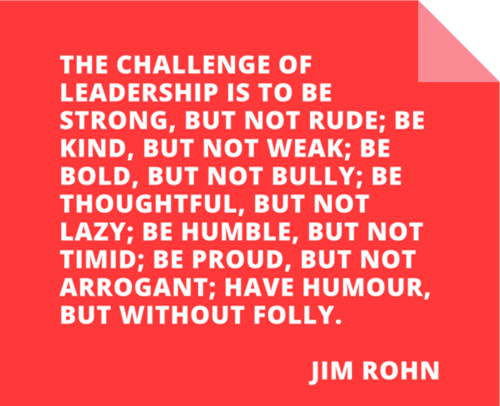Over the weekend, I was told a lovely story that has inspired this blog post. The story was of a young lady who was applying to attend a college at Oxford University. A key part of the process was to complete an application form. One of the questions on the application form asked prospective students to declare if they were a leader or a follower. This lady was of the ‘I can only answer questions completely honestly’ ilk, and so ticked the box marked ‘follower’. Having sent the application from to the college, she was not optimistic. Oxford University will surely only accept leaders. A few weeks later she received a letter from her chosen college. To her surprise, she had been accepted. The letter advised her that the college had over 400 applications from ‘Leaders’. They felt that it was imperative that the Leaders were able to lead at least one follower!!
The story made me think about the number of people across the world who believe that they are leaders but actually are not. People who are ‘leading’ organisations, but in a way that is failing to encourage their colleagues to want to follow. During my career, I have been led by a number of men and women. Some have been ‘good’ leaders. Some have been ‘weak’ leaders. The very best ‘leader’ that I had was the one who understood the importance of one critical thing………people. For an organisation to be truly customer focussed, it must UNDERSTAND the importance of people. Customers and colleagues are people. To be truly customer focussed, an organisation must be LED by someone who understands people – and this is why customer experience NEEDS good, strong leadership.
Let’s have a look at the Wikipedia definition of leadership:
Leadership has been described as “a process of social influence in which one person can enlist the aid and support of others in the accomplishment of a common task”, although there are alternative definitions of leadership. For example, some understand a leader simply as somebody whom people follow, or as somebody who guides or directs others, while others define leadership as “organizing a group of people to achieve a common goal”
A good strong leader can almost certainly influence anyone to follow anything – customer focussed or not. A ‘common goal’ does not have to be of the customer focussed variety. However what the Wikipedia statement validates is that people follow leaders, whether as individuals or as part of a group. Therefore, if a leader is not particularly concerned about guiding his or her organisation to be one that ‘puts the customer first’, it is very unlikely that the organisation will.

Organisations that are not customer centric do not have leaders who believe in the customer. If they did, the organisation would be customer centric. In my mind, it is that simple. Many businesses have ‘followers’ who do not understand why the business behaves in the way it does. They know what is wrong, and why customers get upset, yet nothing is ever done about it. These are businesses who have leaders whose motivation is not one of customer centricity. This is why sometimes, the follower has to BECOME the leader. Sometimes, followers have to influence and inspire leaders to understand that there is a problem and something must be done.
Customer Experience Professionals (CXP) tend to be leaders. They are leaders because they are passionately driven to do what is right for the customer. They will not shy away from telling the organisation the truth. They will do whatever it takes to do what is right. This is not an easy thing to do – especially when many CXPs do not operate at board level. Yet this is why customer experience has risen so significantly in prominence over the last five years. This is why many ‘leaders’ now understand the importance of customers and colleagues. This is why many ‘followers’ have risen to become recognised ‘leaders’.
Great leaders display the following traits. Customer experience requires the following traits:
- Ambition
- Humility
- Patience
- Vision
- Tolerance
- Courage
- Accountability
- Gratitude
- Honesty
- Humour
A leader who possesses these traits is a leader who is likely to do what is right for their organisation. A leader who possesses these traits is a leader who is likely to do what is right for the people who the organisation serves – his customers and his colleagues. A leader who does what is right for his people is one who is very likely to be the leader of a successful organisation.
When we think of great ‘corporate’ leaders, we find it hard to come up with a list of names. Steve Jobs; Jack Welch; Richard Branson – the names are often the same. Why is it that we live in a business world where there are so few examples? Leadership is a choice. Not everyone needs to be one. Yet, if you do aspire to be a leader, make sure you ask yourself every single day – do I really understand my people?
Who do you think is a great example of ‘leadership’ in the world of business and why?



